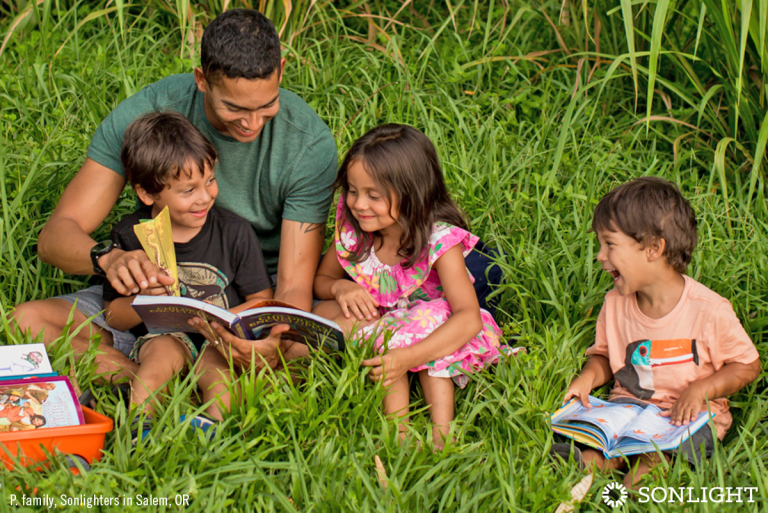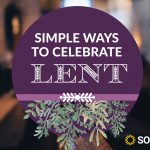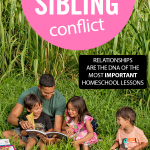
It is not that an amount of social interaction should be permitted up until the point that it distracts from academic work. It is more that academic work should be permitted up until the point that it distracts from social interaction.
How often did you hear, “You have not come here to socialise!” at school? Other people were considered a hindrance to proper school-work. Peers certainly were, let alone younger children. We cannot, however, ask a child to ignore his friends for the sake of abstracted knowledge, not just because abstracted knowledge is unduly arduous but because knowledge, abstracted from other people, is actually bad.
Knowledge Puffs Up; Love Builds Up
Knowledge puffs up, you could say, if it is not in service of others. Even in preparation for future service, lonely knowledge is prideful and inert. In fact, relationship is your curriculum’s most costly resource.
My six-year-old daughter broke a pencil, shading the forests of South America for Science B, and despairingly threw the broken pencil at her four-year-old brother.
“You do it,”she barked. He paused to look at the abandoned pencil. I waited with a sinking heart.
“Okay,” he said, and took up the pencil. She was surprised and disarmed by his response. He had absorbed the fiery advance and made peace. He scribbled with the broken pencil, and she was drawn in once more to gently (but imperiously) improve his grip.
Once the map was completed, they threw it to their two-year-old brother who ripped it to shreds delightedly, to their applause.
I was angry about the whole ordeal. They missed the point of the lesson, only to get caught up in a childish clash. Or maybe there is more to it than that. The six-year-old wrote a quote from Sticks Across the Chimney (from History / Bible / Literature C) in her Discovery Journal that afternoon.
"Good begets good.”
Good Begets Good
Whether it was a reflection on her brother’s unwillingness to reciprocate her angry outburst, or on her failure to forestall a vicious cycle, or whether it was connected at all, I don’t know. But it made me rethink the result of the lesson, and what the lesson was.
Her four-year-old brother surely saw how frustrated she was with the broken pencil, but took it as an opportunity to help her. He finished the task that her temper had rendered too difficult. He was able to show a glimmer of Joseph’s grace-powered announcement that, “You meant it for evil, but God meant it for good.” Together, they were able to make a straight line with a crooked pencil.
If the lesson I was interested in having was, in the final analysis, the geography lesson, I had failed, and so had the students. If the lesson, on the final analysis, is moral and spiritual, then I can release control.
The DNA of a Homeschool Lesson
Not only should the geography lesson be preparation for future loving service of God, but it must be in the very DNA of the lesson. They will forget the majority of the geography lesson, but it is that DNA which will form the basis of tenfold future lessons. That DNA, of relinquishment of self and seeking after God, is the lesson that lasts.
Next time you mark it as a failure when your six-year-old throws a broken pencil or your twelve-year-old storms out of the classroom, consider the DNA of your lesson.
Is the DNA the teacher and her information, or is it God and His work in your children? If so, then your failures are not failures. God never fails. In His upside down kingdom, it is
- the exasperated child who is wise
- the disabled sibling who is strong
- the whining two-year-old who teaches
- the angry ten-year-old who makes peace
- the distracted four-year-old who breaks through
- the tired parent who creates
That is the DNA of a godly lesson in a homeschool family. That is the death of the self.
Permit academic work up until it hinders social interaction. That doesn’t mean limiting the number of geography lessons, but it does mean limiting a sense of control. I can control a lesson plan, but I can’t control a child’s heart. If love is greater than knowledge, then the DNA of your geography lesson is other people. It is learning to be the hands and feet of Jesus.
If our children fill their heads with geography, trampling and ignoring others as they do so, this may become irreparable DNA damage, making geography, I believe, harder and harder to retain.
I treasure sibling conflict for the same reason I treasure whines and distraction and exhaustion: Weak people need a strong God. It is when we are at our most unlovely that Christ is supremely treasured. Let Him be the DNA of your lesson.






